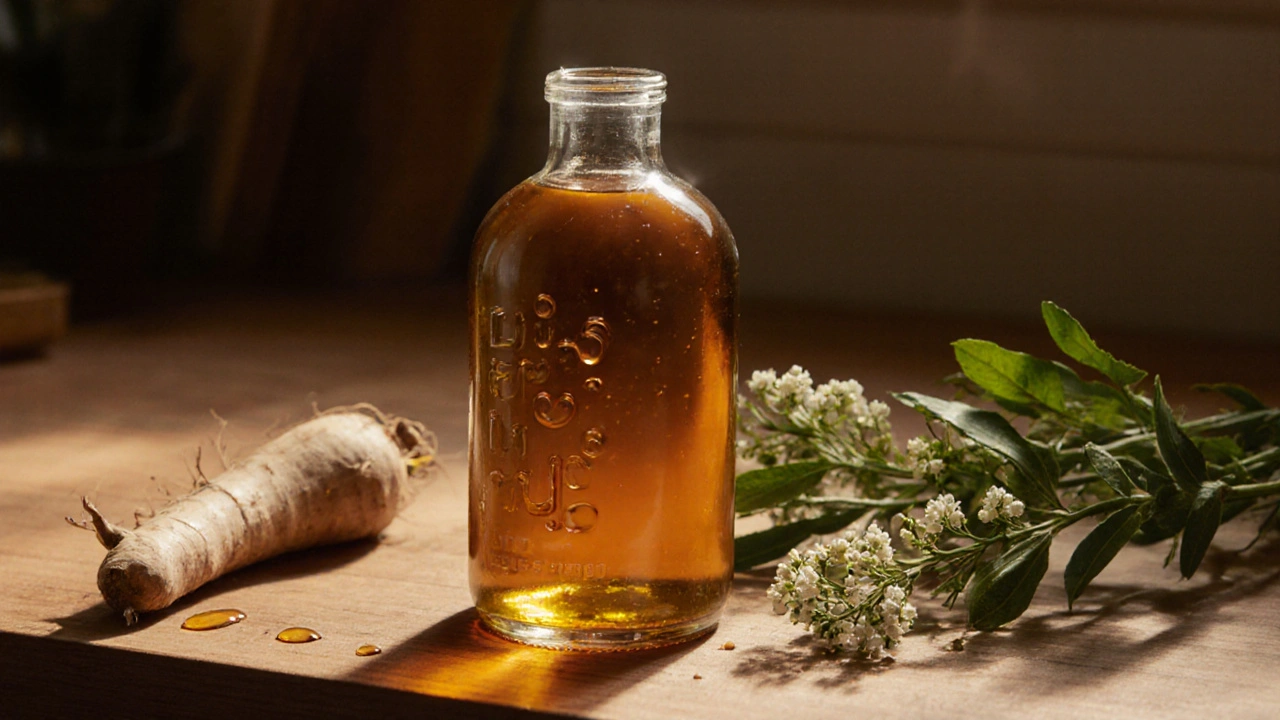
Key Takeaways
- Liv.52 Syrup combines chicory root and caper bush extracts for a gentle, liquid liver support option.
- Milk thistle, turmeric, and dandelion root are the most common alternatives, each with its own strength and safety profile.
- If you need a low‑dose, easy‑to‑swallow formula, the syrup edges out tablets for tolerability.
- Cost per month varies: the syrup sits around $30‑$40, while high‑potency milk‑thistle capsules can reach $60.
- Always check for interactions with prescription meds; most liver herbs are safe but can affect blood‑thinning drugs.
When it comes to herbal liver tonics, Liv.52 Syrup (Chicory, The Caper Bush) is a liquid formulation that pairs chicory root with extracts from the caper bush, marketed for supporting liver function and detoxification. It’s sold as a milder, syrupy version of the classic Liv.52 tablets that have been around since the 1980s. The syrup promises easier digestion, a pleasant taste, and a rapid entry into the bloodstream-features that appeal to people who struggle with swallowing pills or who want a gentler start to a liver‑health routine.
But the supplement market is crowded. From milk‑thistle capsules to turmeric powders, dozens of products claim to "cleanse" the liver. Choosing the right one can feel like a guessing game. This guide breaks down the core ingredients, the science behind them, side‑effect risk, price, and who each product works best for. By the end you’ll know whether Liv.52 Syrup is the right fit or if another alternative aligns better with your health goals.
What’s Inside Liv.52 Syrup?
The syrup blends two botanicals with a small amount of sugar to improve palatability. Here’s a quick snapshot:
- Chicory root (Cichorium intybus) - a source of inulin, a soluble fiber that supports gut health and may indirectly ease liver load.
- Caper bush (Capparis spinosa) extract - rich in flavonoids and glucosinolates, compounds that have shown antioxidant activity in animal studies.
- Vitamin B complex (B1, B6, B12) - cofactors in liver metabolism.
- Small amount of natural sweetener (often honey or cane sugar) for taste.
The formulation does not include the traditional Liv.52 tablet blend (which adds herbs like Phyllanthus niruri and Andrographis paniculata). Instead, the focus is on a simpler, syrup‑friendly lineup.
How Does the Syrup Claim to Work?
Manufacturers say the two key herbs act in three ways:
- Antioxidant shield - flavonoids in caper bush neutralize free radicals that damage liver cells.
- Fiber‑driven detox - inulin from chicory boosts short‑chain fatty acid production, which supports the gut‑liver axis.
- Vitamin‑cofactor boost - B‑vitamins aid enzymatic pathways that process toxins.
Human trials are limited, but a 2022 small‑scale study in India (n=45) reported modest reductions in serum ALT and AST after eight weeks of daily syrup use, compared with a placebo group that saw no change. The authors cautioned that larger, double‑blind studies are needed.
Meet the Main Competitors
Below are the most widely used liver‑support herbs you’ll see on pharmacy shelves or Amazon listings. Each has its own research track record, typical dosage, and safety notes.
| Product | Key Ingredients | Typical Daily Dose | Primary Benefits | Common Side Effects | Approx. Monthly Cost (USD) |
|---|---|---|---|---|---|
| Liv.52 Syrup (Chicory, Caper Bush) | Chicory root, Caper bush extract, B‑vitamins | 1-2Tbsp (≈15‑30ml) | Gentle antioxidant support, gut‑liver axis aid | Rare stomach upset, mild sweetness‑related GI discomfort | $30‑$40 |
| Milk Thistle (Silybum marianum) Capsules | Silymarin (standardized 80% flavonolignans) | 150‑300mg, 1‑2capsules | Strong antioxidant, cell‑membrane protection | Headache, mild diarrhea | $45‑$60 |
| Turmeric Curcumin Softgels | Curcumin + piperine (enhances absorption) | 500‑1000mg, 1‑2softgels | Anti‑inflammatory, supports bile flow | Stomach upset, increased bleeding risk with anticoagulants | $25‑$35 |
| Dandelion Root Tea | Dandelion leaf & root (Taraxacum officinale) | 2cups brewed daily | Diuretic effect, mild detox | Heartburn, allergic reaction in ragweed‑sensitive individuals | $10‑$15 |
| Artichoke Extract Capsules | Cynara scolymus (standardized 5‑% cynarin) | 300‑500mg, 1‑2capsules | Stimulates bile production, improves lipid metabolism | Gas, nausea | $30‑$45 |
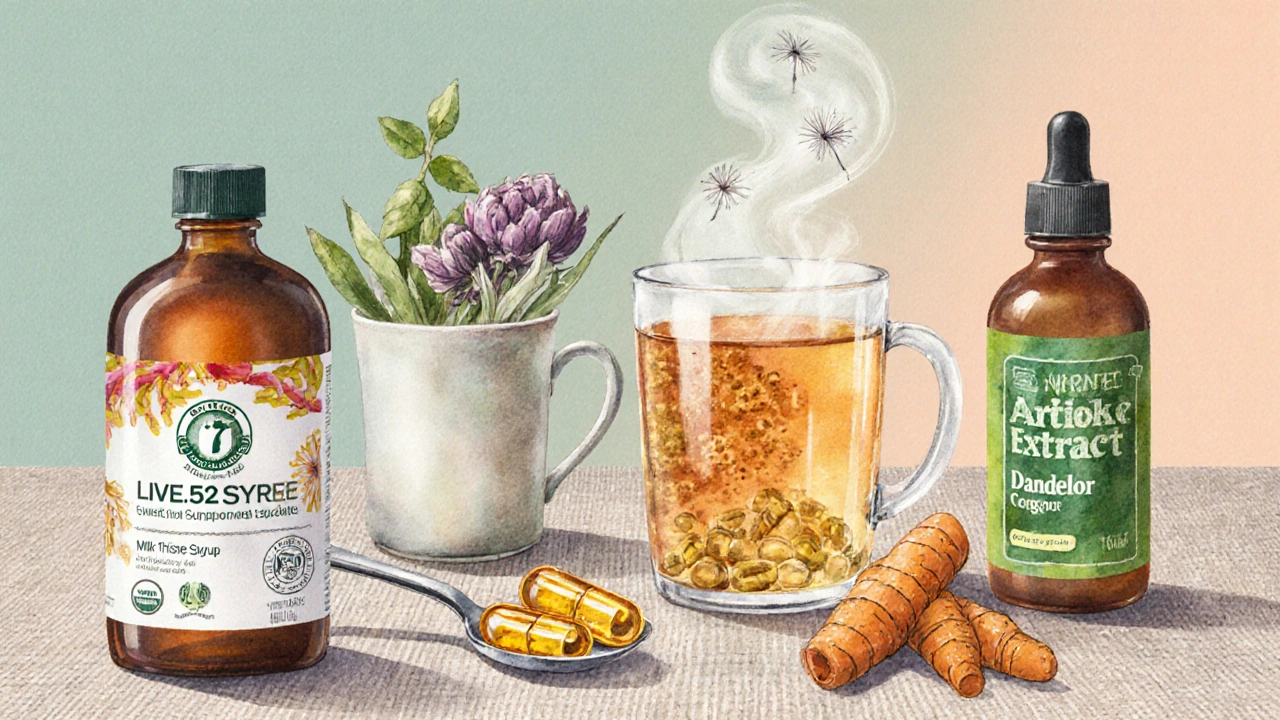
Deep Dive: How Each Alternative Stacks Up
Milk Thistle - The Gold Standard?
Milk thistle has the longest research pedigree. Silymarin, its active complex, protects liver cells from oxidative stress and helps regenerate damaged tissue. A 2021 meta‑analysis of 17 randomized trials found a statistically significant drop in ALT levels for patients with non‑alcoholic fatty liver disease (NAFLD) taking silymarin versus placebo.
Pros:
- High antioxidant potency.
- Well‑documented safety profile.
- Available in both standard and high‑potency extracts.
Cons:
- Capsules can be large; not ideal for pill‑averse users.
- Cost per month climbs quickly with premium brands.
- May interact with CYP3A4‑metabolized drugs (e.g., statins).
Turmeric (Curcumin) - Anti‑Inflammatory Powerhouse
Curcumin’s anti‑inflammatory action helps reduce liver inflammation, especially in alcoholic liver disease. However, its bioavailability is notoriously low; most commercial products add piperine (black‑pepper extract) to boost absorption by up to 2000%.
Pros:
- Broad anti‑inflammatory benefits beyond liver health.
- Often cheaper than premium milk‑thistle brands.
Cons:
- High doses may thin blood; caution with anticoagulants.
- Some users report stomach irritation.
Dandelion Root - The Gentle Diuretic
Dandelion acts as a natural diuretic, promoting the excretion of excess water and toxins. Its bitter compounds stimulate bile flow, aiding fat digestion. It’s a go‑to for people seeking a mild, food‑grade supplement.
Pros:
- Readily available as tea, tincture, or dried root.
- Very low cost.
Cons:
- Effect is modest; not a stand‑alone therapy for serious liver disease.
- Allergic potential for those with ragweed or daisies.
Artichoke Extract - Bile‑Boosting Agent
Cynarin in artichoke stimulates bile secretion, which can help clear fat deposits from the liver. Small studies in patients with mild NAFLD showed improvements in liver‑fat scores after 12 weeks of daily artichoke extract.
Pros:
- Supports digestion, may improve cholesterol levels.
Cons:
- Can cause gas or mild nausea in sensitive individuals.
Where Liv.52 Syrup Excels
If you’re looking for a product that’s easy on the stomach, doesn’t require swallowing pills, and offers a blend of fiber‑support plus antioxidants, the syrup stands out. Its Liv.52 syrup format delivers a steady, low‑dose stream of active compounds, which can be especially useful for:
- Older adults with dysphagia.
- People who prefer a sweet‑tasting supplement after meals.
- Those on a mild detox plan who want a short‑term boost without high concentrations.
Because the dose of each herb is modest (roughly 50mg of caper‑bush flavonoids per serving), the side‑effect profile is light. The main caution is the added sugar-if you’re diabetic or watching carbs, you might need to adjust your overall intake.
Choosing the Right Liver Tonic for Your Situation
Here’s a quick decision guide based on common goals:
- General liver maintenance - Liv.52 Syrup or Dandelion Tea offer gentle, daily support.
- Clinically proven ALT/AST reduction - Milk thistle takes the lead.
- Inflammation from alcohol or metabolic syndrome - Turmeric (with piperine) adds anti‑inflammatory firepower.
- Fat‑soluble toxin clearance (bile support) - Artichoke extract shines.
Don’t forget drug interactions: if you’re on Warfarin, avoid high‑dose turmeric and check with your doctor before starting any new herb.
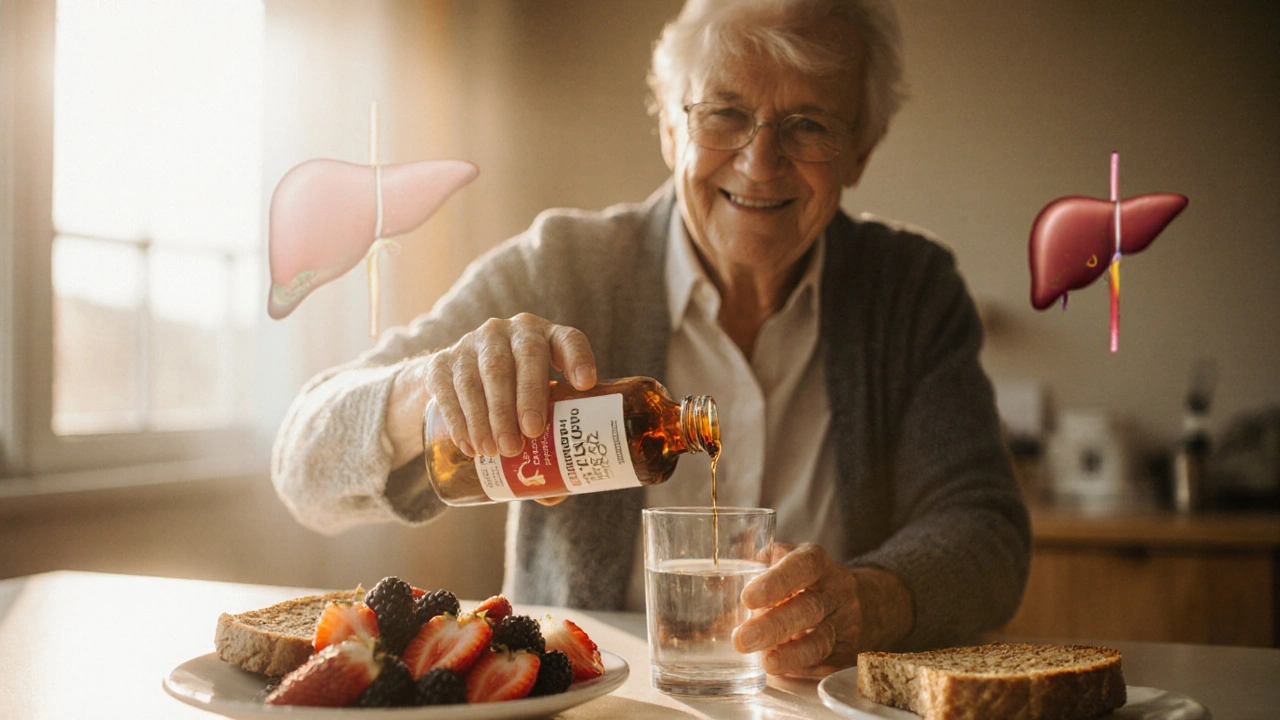
Price‑Performance Snapshot
Price matters, especially when you’re committing to a month‑long regimen. Below is a rough cost breakdown (average US retail prices, October2025):
- Liv.52 Syrup: $30‑$40 for a 150ml bottle (≈30‑day supply).
- Milk Thistle: $45‑$60 for 60‑caps (standard dose).
- Turmeric: $25‑$35 for 60 softgels.
- Dandelion Tea: $10‑$15 for a bulk leaf pack.
- Artichoke Extract: $30‑$45 for 60 capsules.
When you factor in the dosage, Liv.52 Syrup often provides the best value per active milligram for someone who prefers a liquid format.
Practical Tips for Getting the Most Out of Your Liver Tonic
- Take the syrup with a meal - the fats help absorb the flavonoids.
- Start with one tablespoon daily; increase to two if you tolerate the sweetness.
- Combine with a balanced diet rich in antioxidants (berries, leafy greens) for synergistic effect.
- Stay hydrated - water supports the liver’s natural filtration.
- Track liver enzymes (ALT, AST) with your doctor after 8‑12weeks to see if the supplement is making a measurable difference.
Frequently Asked Questions
Is Liv.52 Syrup safe for long‑term use?
The syrup’s ingredients are generally recognized as safe (GRAS) when taken at the recommended 1‑2tablespoons per day. Long‑term studies are limited, so most experts suggest a periodic “break” of 2‑4 weeks after three months of continuous use, especially for people with chronic conditions.
Can I combine Liv.52 Syrup with milk‑thistle capsules?
Yes, you can stack them because they work via slightly different pathways-Liv.52 Syrup offers fiber‑driven detox, while milk‑thistle provides direct cellular antioxidant protection. Keep the total daily dose of flavonoids under 500mg and monitor for any gastrointestinal upset.
What’s the best time of day to take the syrup?
Take it with a main meal-preferably breakfast or lunch-so the fat content helps absorb the fat‑soluble compounds. Evening use is fine too, but some people report a mild energy boost that can interfere with sleep if taken too late.
Does the added sugar make the syrup unsuitable for diabetics?
A typical 15ml serving contains about 5g of sugar. If you’re closely managing blood glucose, you might want to limit intake to once daily or choose a sugar‑free version (some brands now offer stevia‑sweetened formulas).
How quickly can I expect to see changes in my liver labs?
Most users report modest lab improvements after 8‑12weeks of consistent use. That timeline matches clinical trial periods for milk‑thistle and turmeric as well. Patience is key-supplements support, they don’t replace, medical treatment.
Bottom line: Liv.52 Syrup (Chicory, The Caper Bush) offers a friendly, liquid entry point for liver support, especially if you dislike pills or need a low‑dose regimen. For potent antioxidant action, milk‑thistle remains the benchmark; for inflammation, turmeric shines; for cheap daily use, dandelion tea wins. Match the herb’s strength to your health goal, watch your budget, and always check with a healthcare professional before mixing supplements with prescription meds.

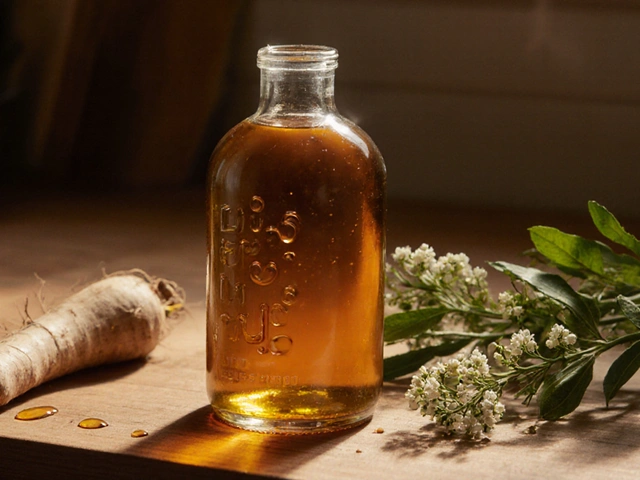
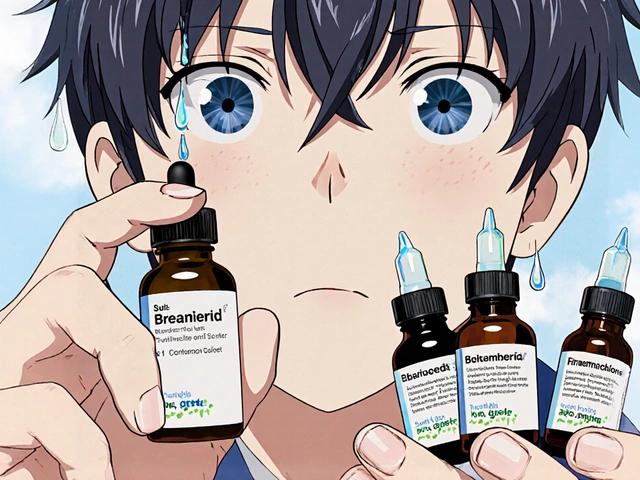

One must consider the possibility that the very entities promoting Liv.52 Syrup are colluding with larger pharmaceutical conglomerates to distract health‑conscious consumers from more efficacious, but less marketable, interventions. The inclusion of a modest amount of sugar, for instance, is not merely a palatable choice but a calculated strategy to engender habitual consumption, thereby ensuring a steady revenue stream that can be funneled into further research suppression. Moreover, the selective citation of a solitary small‑scale Indian trial raises concerns about the rigor of the evidence base, especially when larger meta‑analyses on alternative botanicals are conveniently omitted.
Liv.52 Syrup is cheap and tastes ok my only issue is the sugar content
The dialectic of hepatic fortification pivots on the axis of bioavailability versus patient compliance. When the syrup offers a kinetic pathway that circumvents the esophageal gate, it democratizes access to phytochemical antioxidants. Yet, the ontological weight of silymarin’s empirical pedigree cannot be dismissed outright; it remains a cornerstone in the corpus of hepatoprotective research.
I totally get why some folks prefer a liquid. Swallowing big pills can be a real hassle, especially if you have trouble downing them. The syrup’s gentle approach might be just what you need, but keep an eye on the sugar if you’re watching carbs. Also, the B‑vitamins are a nice bonus for overall metabolism. If you notice any stomach upset, maybe start with a smaller dose and see how it goes. Hope this helps!
Oh great another “miracle” juice – because we all need another sweet drink to pretend we’re healthy ok
The narrative surrounding Liv.52 Syrup is deliberately engineered to obscure the fact that its clinical validation is, at best, anecdotal. By foregrounding a modest 15‑ml serving size, manufacturers mask the negligible concentration of active flavonoids, thereby creating an illusion of efficacy while the real therapeutic agents remain under‑dosed. Consequently, consumers are unwittingly coerced into a regimen that offers comfort rather than measurable clinical benefit.
Let me break down the practical considerations for anyone thinking about adding Liv.52 Syrup to their routine. First, the dosage is straightforward: one to two tablespoons per day, taken with a main meal to aid absorption of the fat‑soluble flavonoids. Second, the sugar content is modest – roughly five grams per fifteen‑milliliter serving – which may be acceptable for most adults but should be adjusted for individuals managing blood‑glucose levels. Third, the inclusion of inulin from chicory root supports the gut‑liver axis by fostering beneficial short‑chain fatty acid production, a mechanism that complements the antioxidant activity of caper bush flavonoids. Fourth, the B‑vitamin complex (B1, B6, B12) provides essential cofactors for hepatic enzymatic pathways, potentially enhancing the detoxification capacity of the liver. Fifth, the syrup’s liquid form can be advantageous for those with dysphagia or a strong aversion to large pills, offering a more palatable alternative without compromising convenience. Sixth, while the clinical data are limited, the small Indian study cited in the product literature showed modest reductions in ALT and AST after eight weeks, suggesting a possible biochemical benefit that warrants further investigation. Seventh, cost‑effectiveness is favorable: at $30‑$40 per month, the syrup delivers a comparable amount of active ingredients to many capsule‑based products that often cost $45‑$60 for a similar duration. Eighth, potential interactions should be considered; the flavonoids may influence CYP450 enzymes, so patients on medications metabolized by these pathways ought to consult their healthcare provider before initiating use. Ninth, if you are diabetic or following a low‑carb diet, you might opt for a sugar‑free version or limit intake to once daily to keep carbohydrate load in check. Tenth, staying hydrated and maintaining a balanced diet rich in antioxidants (berries, leafy greens, nuts) can synergize with the syrup’s effects, creating a holistic approach to liver health. Eleventh, monitoring liver function tests after 8‑12 weeks can provide objective feedback on the supplement’s impact, helping you decide whether to continue, adjust the dose, or explore alternative therapies. Finally, remember that supplements are adjuncts, not replacements for medical treatment; always keep your physician in the loop regarding any new regimen. By keeping these points in mind, you can make an informed decision that aligns with your health goals and budget.
thanks for the thorough guide i think i will try it but i m a bit worried about the sugar i guess i can start with once a day and see how i feel
Sure, because we all need more sugar in our lives.
The labyrinthine schemata of nutraceutical deception is evident in every glossy label – the caper bush extract is nothing more than a pharmaco‑political token, a veneer to mask the absence of substantive hepatoprotective potency. One must awaken from this stupor and recognize that true liver resilience stems from systemic lifestyle overhaul, not from sipping a sugary elixir marketed as a miracle. 😒
Hey, I get where you’re coming from, but I think it’s worth a try if someone’s already on a healthy diet and just wants a gentle boost. A short trial could show if there’s any measurable benefit without committing fully.
Just a heads‑up – the word "syrup" should be spelled with a double "r"; also, "capper" is a typo, it’s "caper". Small errors can affect credibility.